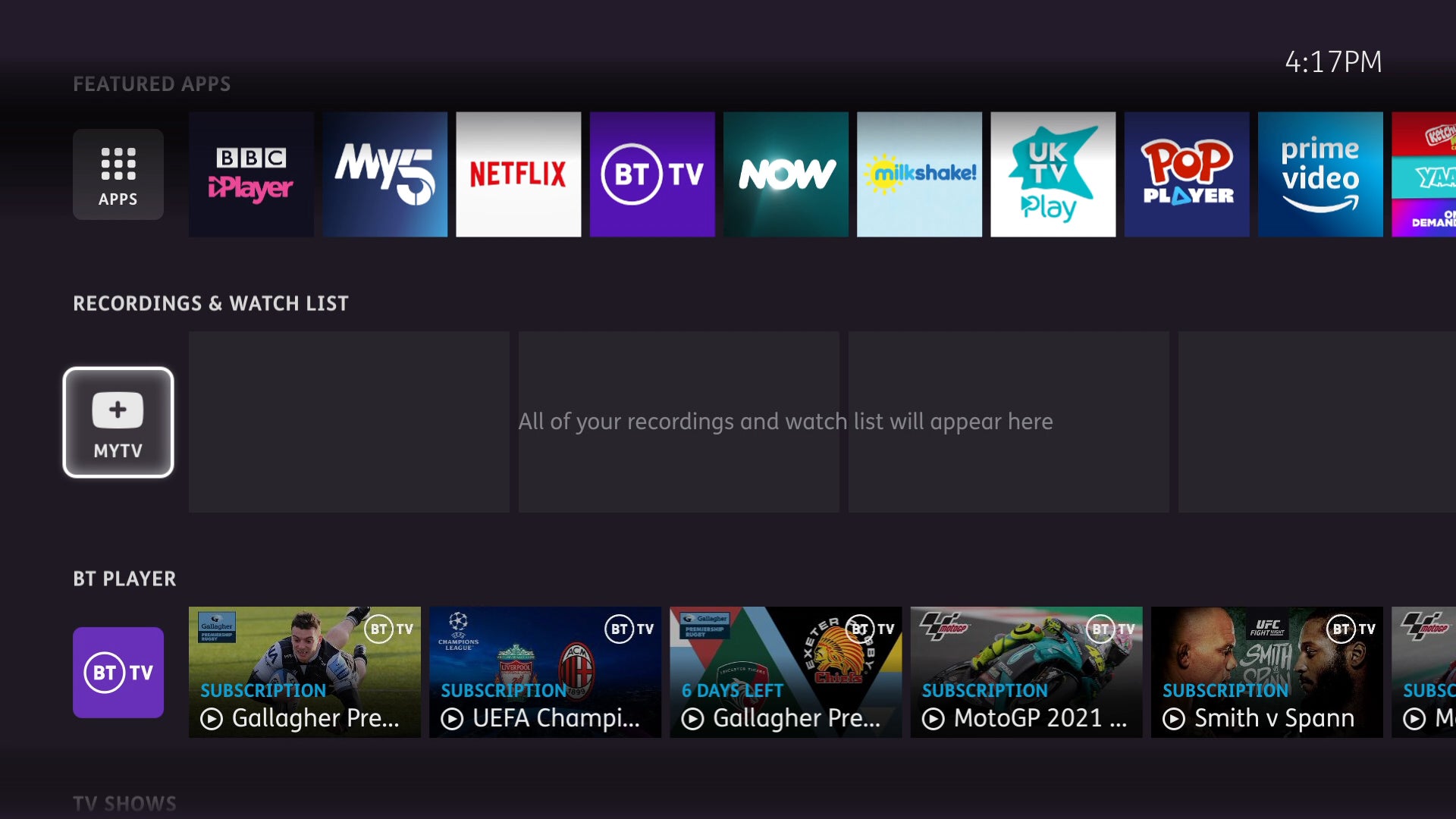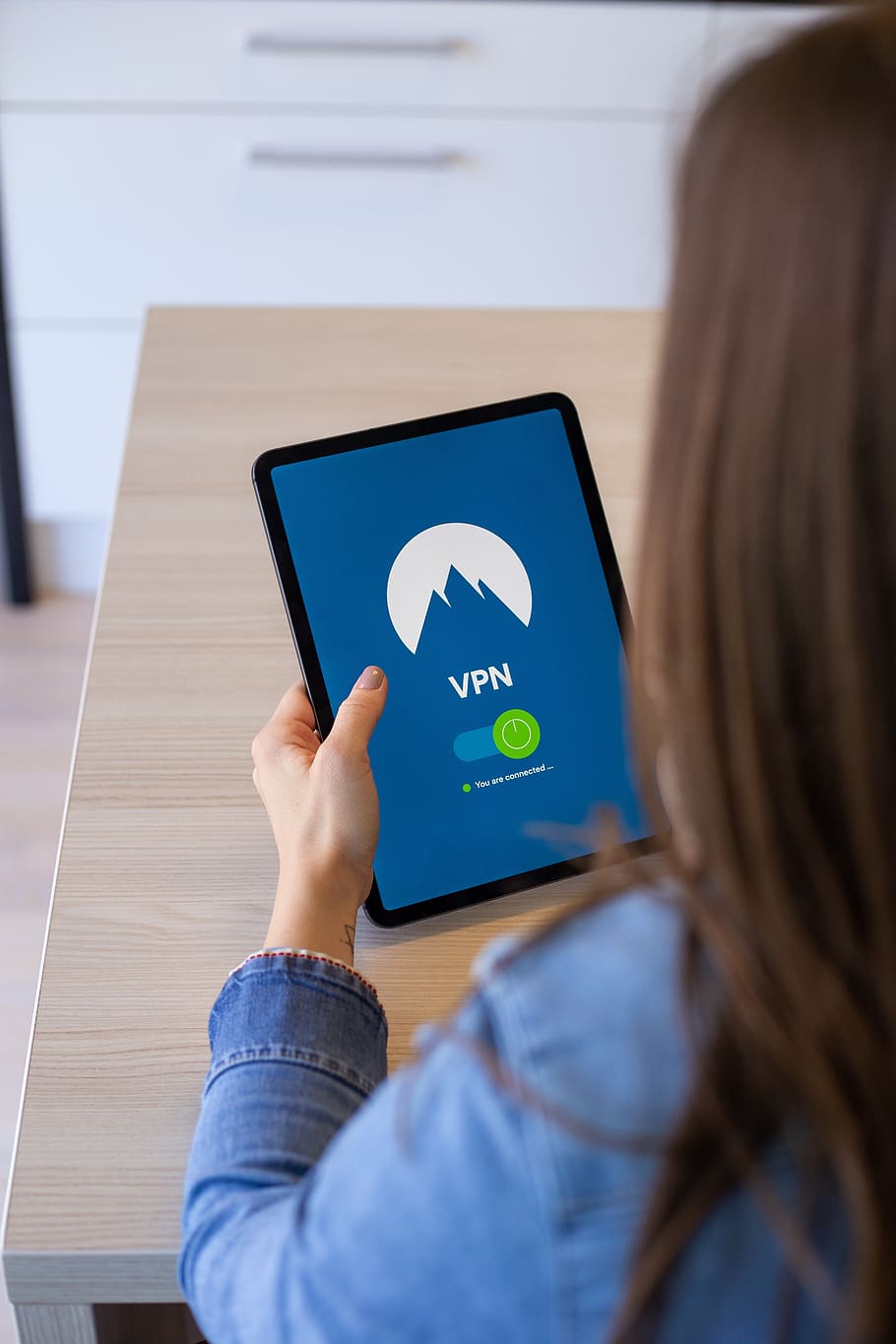VPN vs DNS – What’s best and easiest for streaming?
First things first—before we get anywhere near the big fight, we need to know who the competitors is a VPN? Virtual Private directs your IP address through a set of servers in the country where you need to be, replacing your IP address with a new, virtual one. In doing so, it creates an exceptional level of security and privacy, protecting you from hackers, data snoops, and all kinds of different is DNS? Domain Name of DNS as the phone numbers of your friends. You can’t possibly remember all of their numbers, but it’s easy to remember who they are. Your phone converts your contact’s name into a number to call does a very similar thing. Every website, computer, and server has an IP address; DNS switches each of them into an easier to manage option for the computers in control to work is Smart DNS? Smart DNS converts your IP address into a new virtual location via a proxy server. This creates a Smart DNS address. The proxy server is located in the country of the services you want to access, so they think you’re there too and unlock their, if you change your DNS to a US location, you can stream their Netflix catalogue or access the American sports channels. Your American DNS server takes care of the heavy lifting, while you kick back and watch the baseball or your new favourite box set. Or if you’d rather, choose a different country, switch your DNS, Netflix Mexico is now available where your UK catalogue used to ’s the difference between VPN and DNS? Smart DNS and VPN servers do a very similar job, yet in quite different though both provide methods of navigating around the blocks set up by streaming services, they each have their advantages and disadvantages. The main one, being that a VPN is far more secure. That said, if you’re only streaming TV and movie content, Smart DNS is generally faster and cheaper, and security isn’t likely to be the highest priority in that free VPN and DNS services at all costsOne thing we’re adamant about is that you shouldn’t ever opt for a free VPN or DNS server or service. No free service has the resources they need to do the job properly. In fact, many of the free options will often sell your data to people who you shouldn’t be giving that kind of access. Free VPNs and Smart DNS? Don’t do ’re not getting any closer to picking a winner in the DNS vs VPN battle yet, are we? Let’s look at the pros and cons of each vantages of using a VPN to access streaming servicesExcellent protection for browsing and website access, with full encryption of your dataProvides complete anonymity by changing your IP addressEasy setup on many devicesOffers a variety of additional functionalityAccesses location-based and geo-blocked contentDisadvantages of using a VPN to access streaming servicesIt’s generally more expensive than Smart DNS servicesThey’re often slower than Smart DNS optionsNot available on all devicesAdvantages of using Smart DNS to access streaming servicesIt travels through fewer servers, so is often faster than VPNGenerally cheaper than VPN servicesOften available for devices without access to VPN software or appsCan work with any WiFi router, covering more devices simultaneouslyAccesses location-based and geo-blocked contentDisadvantages of using Smart DNS to access streaming servicesWithout encryption, there’s very little securityDoesn’t hide your IP, so you can still be trackedOften complicated to set upHigher-end Smart DNS services are becoming as expensive as VPN servicesMore of the popular arguments between VPN / DNSSo, Smart DNS is typically cheaper, but VPN gives you a lot more for your money. The big question is, do you need those extra services, or could you save yourself some cash? When it comes to streaming media, we’d have to nudge towards Smart DNS, as it will do pretty much precisely what you need without the hefty bypassing Firewalls – VPN will do you proud; Smart DNS doesn’t stand a osting security – VPN will completely block snoopers, hackers, trackers and more. Smart DNS won’ torrent websites – VPN will switch your IP address and keep you anonymous. Smart DNS will show your true IP, leaving you extremely vulnerable. Highest network speeds – VPN uses part of your bandwidth to provide encryption; Smart DNS doesn’t do that so is generally faster. Available on most devices – Smart DNS can be applied to many devices where a VPN service or app isn’t available. However, Smart DNS is often far more complicated to set up than a it comes to applying your chosen service, VPNs tend to be a lot more user friendly. They’ll typically have a simple on/off button, and feature a kill switch for when you need one. Finding and changing your Apple TV DNS settings or understanding how to change the DNS server on LG smart TV, for example, can be both challenging and incredibly frustrating. Downloading VPN on your Mac, PC, mobile phone, or Smart TV, is pretty simple and consoles are another tricky option. Where many won’t have access to a native VPN app, digging into their DNS isn’t too straightforward either. Changing PS4 DNS settings or your Xbox 360 DNS can be far too taxing for the average gamer, so you’d have to search out an alternative, one that does the hard work for you. I mean, who needs to know the difference between primary and secondary DNS on your PS3 or where to find any model of PlayStation DNS settings, when all you really want to do is pull in a movie or a game that’s just been released in another country? That’s where StreamLocator comes into its reamLocator works with your WiFi router, so you don’t need to worry about applying software and settings, or downloading apps to any of your device you connect to the Internet through our smart hub is automatically catered for. No more worrying about how you should switch your Xbox DNS settings, or what you need to have the correct DNS settings for UK Netflix, it’s all sorted for you. If you need to switch your Amazon Fire Stick DNS to access Prime Video in another country, we have an app for that, or our smart hub can do the job easily and simply, by reamLocator uses the best of both worldsWhen it comes to the VPN or Smart DNS debate, the ultimate option would be to use both. Ideally, we should all use a VPN to provide protection when we need it, and then Smart DNS for the fastest streaming when security isn’t too big an it comes to streaming geo-blocked media, StreamLocator uses a combination of technologies to find out which is the best option for the servers it’s accessing. By communicating with each of them, it determines the best option to bypass their blockades and uses that to stream your ’s nothing quite like it.

Smart DNS vs. VPN (In-Depth Comparison) – Surfshark
2021, September 10 · 12 min read
When it comes to accessing web content, people will recommend you all sorts of things. You’ll keep hearing acronyms like DNS, smart DNS, and VPN. But what do they do and are they really what you need? This article will tell you all you need to know about them – and how to choose the right option for you.
Smart DNS vs. VPN in short
Both smart DNS and VPN use DNS to bypass firewalls and censorship. DNS is an integral part of both VPN and smart DNS.
Smart DNS
Combination of DNS and proxy server
ProsConsFaster than VPN No IP hiding Can defeat some firewalls and censorshipNo encryption Works on devices that don’t support VPN clients Manual setup Lacks other VPN features
VPN (Virtual Private Network)
Encrypts your data and routes it via a VPN server
ProsConsHides IPMay slow down the connectionEncrypts dataNot supported by some devicesEasy to set upCan defeat basically any block or restrictionAdditional security features (Kill Switch, split tunneling, etc. )
What is DNS?
DNS is an acronym for a Domain Name System. It’s like a phonebook for computers: when you give them a name (website address), they use the DNS to look up the phone number (website’s IP address). That’s how computers are able to reach them. Most people use the default DNS supplied by their internet service provider (ISP).
Changing your DNS can help overcome the most basic ISP-level blocks that are carried out at the DNS level.
For example, the government tells your internet service provider (ISP) to block the website “” The ISP restricts access to that domain address, so when you enter “” in the browser bar, it tells you that it can’t find the website. If you change your DNS provider, then the block won’t work, and you would be able to access “” freely.
However, that’s just your regular DNS. Smart DNS is a slightly different story.
Is changing DNS legal?
Yes, changing DNS is legal. The service is mostly there to provide basic internet functionality. You are not forced to use your ISP’s DNS. That’s why high-profile alternative DNS services like OpenDNS and Google’s Public DNS exist.
Is it safe to change your DNS?
A DNS change will not hurt your device. As long as you’re using a well-known service – like OpenDNS and Public DNS – you are not in any danger. Also, changing DNS can be undone at any time as long as you have the data for the original one.
What is a smart DNS?
Smart DNS is a term for a service that combines a DNS server and a proxy server. The DNS part of the system picks up when the user wants to access a specific blocked website and then routes that request via the proxy server.
That proxy server then pings the geo-blocked website you wish to access. This makes the websites believe that the user is actually connecting from the proxy server’s location. If that server is in the US, the website thinks you’re from the US as well.
Smart DNS services are usually paid, as developing a product that increases your access and overcomes geographical restrictions needs advanced resources.
Is smart DNS proxy legal?
Proxies are legal, DNS changing is legal, and a combination of those two is also legal. Some online services might object to you using a smart DNS proxy – you should always check terms and agreements before deciding whether to use it – but there is no law against its use.
Now you know what a smart DNS is and does. Time to learn about VPNs. Good VPNs can combine both of the discussed technologies into one service and provide you with something more.
What is a VPN?
The most secure connection in the world would be two computers connected by a single wire, as there wouldn’t be a third computer to listen in. A VPN – Virtual Private Network – recreates that sense of security and privacy by using such smart tech things as encryption and VPN servers.
What do VPNs do? They grant you unparalleled access to the world of online content by helping to overcome many types of online restrictions, including DNS blocks, IP blocks, and others. Also, they provide encryption to the data you send and receive, making your online activities more private.
This allows VPN to bypass most of the blocks you’ll encounter online.
Opening up the internet is only half of the use of a VPN. The other is security: hiding your DNS and IP makes it very hard to track you online. The government can force your ISP to record your browsing history, and hackers may try to steal your data. Using a VPN makes those attempts a lot harder – if not impossible.
Surfshark does not encourage using a VPN in ways that would potentially violate Terms of Service of streaming service providers.
What is the difference between smart DNS and VPN?
The biggest differences between a smart DNS and VPN solutions are that a smart DNS doesn’t encrypt your connection or hide your IP. This makes it less powerful when it comes to unblocking websites online.
Those two VPN features also make VPNs great at maintaining your privacy and security on the internet. A smart DNS isn’t meant for that.
Is smart DNS better than a VPN?
VPN is a more flexible service that is better at almost everything a smart DNS does. For a more detailed breakdown of which service to use depending on circumstances, read the following section.
Smart DNS vs. VPN for… Security
Smart DNS doesn’t do much for your security. The DNS server address might change, which will trick DNS lookups. Yet that still leaves your IP address out in the open, and your data isn’t being encrypted.
Smart DNS vs. VPN for… Speed
A smart DNS has a smaller impact on your internet speed than VPN. This is because VPN needs to use some bandwidth for encryption. As smart DNS doesn’t encrypt your data, this makes your connection faster.
Smart DNS vs. VPN for… Bypassing firewalls
A smart DNS can’t bypass IP blocks that workplaces and schools put up – but a VPN can do that and more.
Smart DNS vs. VPN for… Covering all devices
Smart DNS can be set up on devices that don’t always allow a VPN client to be installed. However, if you have a compatible router, you can install the VPN client on it and secure any device that connects to it: your phone, your kids’ tablet, your friends’ phones, a smart lamp, Alexa – you name it.
Get the right tool for the task
A DNS is a very basic service that enables the processes running the internet. Changing your DNS is a simple way of overcoming mundane blocks. Getting a smart DNS increases your accessibility a lot more than a simple DNS change, but it isn’t all-powerful. Now, a VPN is matchless when it comes to improving access to websites – and it comes with many security benefits as well.
Written by
Martynas Klimas
Knows as much about VPN as it is healthy for someone who isn’t a VPN developer

Does Netflix Work with SmartDNS Proxy (Tested October 2021)
Does Netflix Work with SmartDNS Proxy (Tested October 2021)
Software
Minecraft Review
Microsoft Word Review
PowerPoint Review
Adobe Photoshop Review
WhatsApp For Desktop Review
Office 365 Review
Zoom Review
Microsoft Outlook Review
Adobe PDF Reader DC Review
Antivirus
Reviews
Norton Review
TotalAV Review
Bitdefender Review
McAfee Review
Bullguard Review
Intego Review
MacKeeper Review
Panda Review
Scanguard Review
PCProtect Review
Best Antivirus Software
Best Antivirus With VPN
Best Antivirus for Internet Security
Best Malware Removal Software
Best Antivirus for Mac
Best Antivirus for iPhone & iPad
Best Antivirus for Android
Best Antivirus for Windows
Antivirus Comparison
Microsoft Defender vs Alternatives
McAfee vs Norton
Bitdefender vs Norton
Bitdefender vs McAfee
Avira vs Norton
Coupons
VPNs
ExpressVPN Review
CyberGhost VPN Review
Private Internet Access Review
PrivateVPN Review
Zenmate VPN Review
IPVanish VPN Review
VyprVPN Review
HMA VPN Review
Review
Hide Me VPN Review
Best VPN
Best VPNs for Android
Best VPNs for China
Best VPNs for Mac
Best VPNs for iOS
Best VPNs for Windows
VPN Comparison
ExpressVPN vs IPVanish VPN
ExpressVPN vs VyprVPN
ExpressVPN vs Private Internet Access
Astrill VPN vs ExpressVPN
CyberGhost VPN vs ExpressVPN
CyberGhost VPN vs IPVanish VPN
CyberGhost VPN vs Hotspot Shield
IPVanish VPN vs Private Internet Access
PureVPN vs Windscribe VPN
Expressvpn coupons
Cyberghost coupons
Private Internet Access coupons
Parental Control
Qustodio Review
Bark Review
MSpy Review
Norton Family Review
Net Nanny Review
Kaspersky Safe Kids Review
Mobicip Review
WebWatcher Review
MMGuardian Review
Google Family Link Review
Best Parental Control
Best Parental Control for Windows
Best Parental Control for iPhone & iPad
Best Parental Control for Android
Net Nanny coupons
Mobicip coupons
Tools
What is My IP
Data Breaches Tracker
Blog
EN DanskDeutschEnglishEspañolFrançaisHrvatskiIndonesiaItalianoMagyarNederlandsNorskPolskiPortuguêsRomânăSuomiSvenskaTiếng ViệtTürkçeČeštinaΕλληνικάРусскийУкраїнськабългарскиไทย日本語简体中文한국어עבריתالعربية
Frequently Asked Questions about netflix vpn or dns
Is DNS or VPN better?
A smart DNS has a smaller impact on your internet speed than VPN. This is because VPN needs to use some bandwidth for encryption. As smart DNS doesn’t encrypt your data, this makes your connection faster.
Does DNS still work for Netflix?
Overall, SmartDNS Proxy stays true to their claims of unblocking Netflix, even on their 14-day free trial. On your trial, you gain access to 35 DNS servers from a range of different countries.Oct 1, 2021
What is the best DNS for Netflix?
Best Smart DNS Proxy for American NetflixExpressVPN.NordVPN.BulletVPN.SurfShark.Unlocator.Jun 3, 2020

